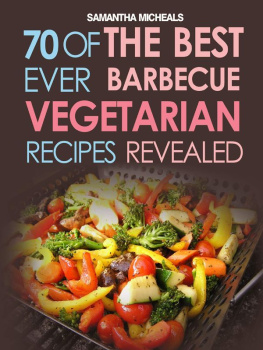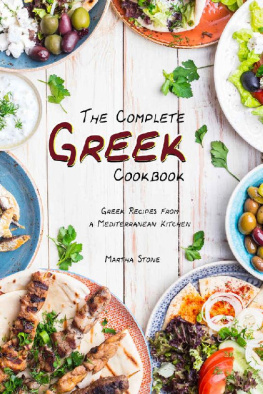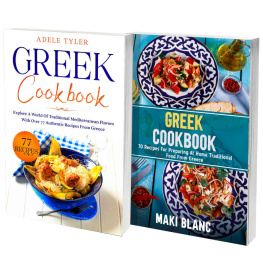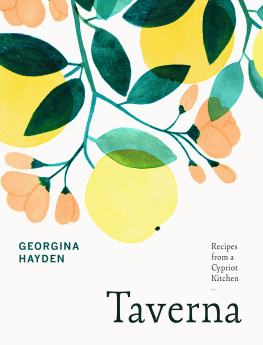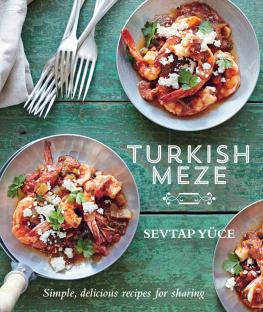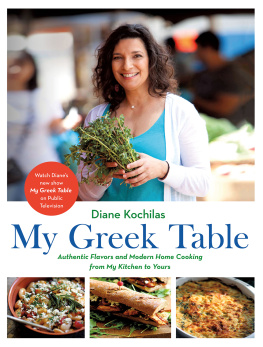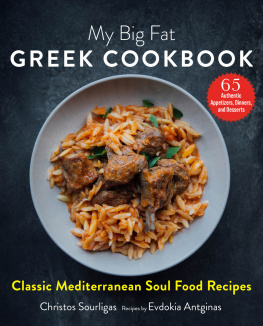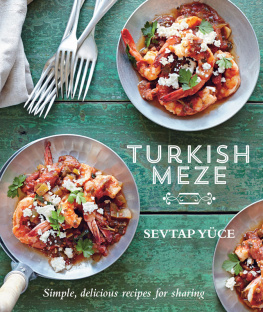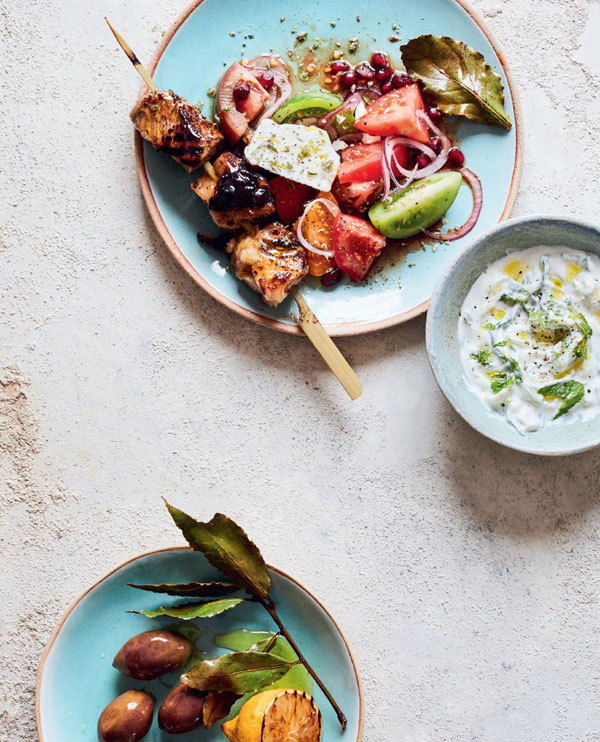
orexi!
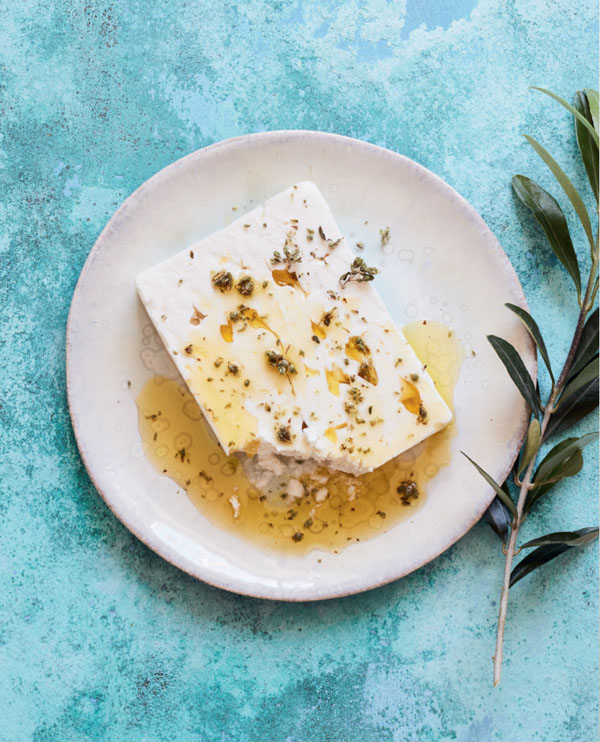
orexi!
FEASTING AT THE
MODERN GREEK TABLE
THEO A. MICHAELS
PHOTOGRAPHY BY MOWIE KAY

Dedication
For my yiayias and papous
Senior Designer Sonya Nathoo
Editors Julia Charles and Kate Reeves-Brown
Production David Hearn
Art Director Leslie Harrington
Editorial Director Julia Charles
Publisher Cindy Richards
Food Stylist Kathy Kordalis
Prop Stylist Tony Hutchinson
Indexer Hilary Bird
First published in 2019
by Ryland Peters & Small
2021 Jockey's Fields
London WC1R 4BW
and
Ryland Peters & Small
341 E 116th St
New York NY 10029
www.rylandpeters.com
Text Theo A. Michaels 2019.
Design and commissioned photographs
Ryland Peters & Small 2019. See for full picture credits.
E-ISBN: 978-1-78879-125-0
ISBN: 978-1-78879-079-6
10 9 8 7 6 5 4 3 2 1
The author's moral rights have been asserted. All rights reserved. No part of this publication may be reproduced, stored in a retrieval system, or transmitted in any form or by any means, electronic, mechanical, photocopying or otherwise, without the prior permission of the publisher.
Printed and bound in China.
CIP data from the Library of Congress has been applied for.
A CIP record for this book is available from the British Library.
Important Notes for Cooks
* Extra-virgin olive oil is the highest quality oil. It is unrefined, contains antioxidants and anti-inflammatories and has a low smoke point and heightened flavour. It is best used for dressings and drizzles. Refined olive oil is milder in flavour and contains less health benefits but its higher smoke point makes it good for cooking. I use Aloades olive oil from a family owned business in Cyprus.
* Both British (metric) and American (imperial plus US cups) are included in these recipes; however, it is important to work with one set of measurements and not alternate between the two.
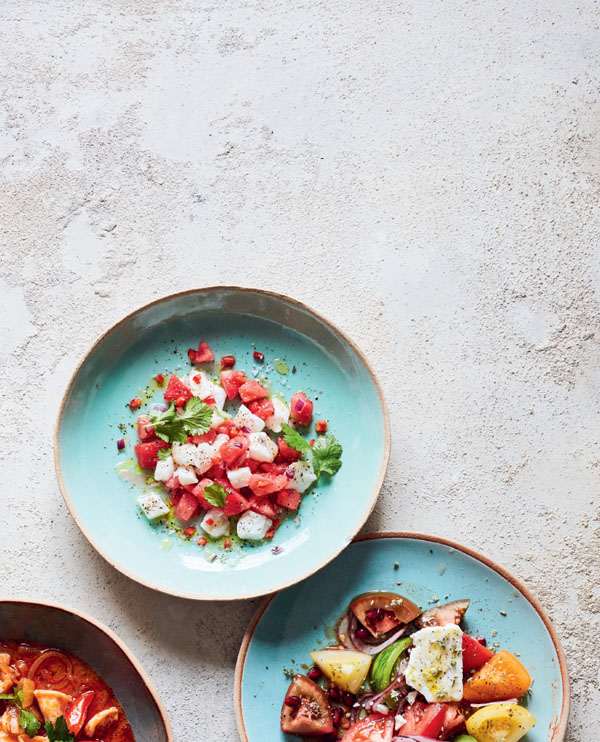
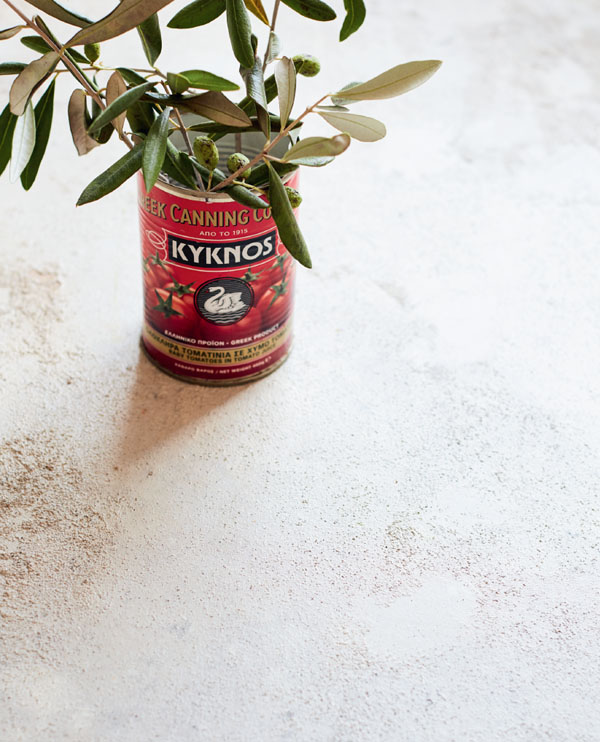
CONTENTS
EAT LIKE A GREEK
In the following pages you'll discover Greek and Cypriot-inspired recipes. Some are born out of childhood memories, others from professional kitchens, more than a few stem from an urgent need to whip up something fast to feed a rabble of hungry kids, and others from those precious lazy weekends when cooking for friends and family is as therapeutic as it is fun. This book contains, and I quote, 'the best Greek recipes ever written in the history of Greek cuisine' (thanks Mum). Many of the dishes may, of course, be familiar to lovers of Greek food, while others are my own new creations. Some recipes are inspired by simple village food rarely experienced outside the Greek community, others are creations that my own family cook; not found in a Greek taverna but frequently present on our kitchen table.
The Greek diet is regarded as one of the healthiest in the world, largely due to the high content of vegetables, fruit, grains, pulses, seafood, olive oil and also fermented dairy foods like live yogurt and feta cheese, but I think eating like a Greek is more than that it is a life philosophy. It's about maintaining a balanced way of eating and living that is sustainable and not adhering to the concept of a prescribed 'diet'. Too much of anything isn't good but not enough of some foods is just as bad. I've never liked the idea of a diet full of rules. I find no love or sensuality in that and, quite frankly, it strips away all the pleasure of eating for me. My own food philosophy originates from village life. My mother grew up in Cyprus and her family grew most of their own produce as their main source of sustenance; leeks, pulses, chard, beetroot, potatoes, tomatoes, cucumbers, figs, dates and so on. They also kept a small number of livestock; pigeons, rabbits, even the odd turkey. They ate meat in moderation, maybe once a week, usually on a Sunday and even then it was mostly chicken. At the time, this way of living was simply born out of necessity; eating what you cultivated was frugality at its best and provided the means to feed a family. Things have changed a lot in Cyprus since then with the abundance of processed foods and use of agricultural chemicals, but ironically, a couple of generations later back in the UK and I'm trying to eat and feed my family with organic, local and sustainable produce as if it's a new idea.
And what actually is Greek food? What makes something Greek? Contrary to popular belief, just adding feta to something doesn't cut it (see for me just adding feta to make something Greek...). But is Greek food simply defined by its ingredients? For sure, there are a handful of foods that are exclusive plus there are specific dishes like saganaki and kleftiko but the headline flavours of lemon, thyme, oregano and olive oil that lace so many of our dishes and are indigenous to the land aren't exclusive to us (albeit they are the world's best, I'm just saying). Other ingredients like pasta and rice may be associated more with Italy or China but have been used in Greek and Cypriot cuisine for centuries. Every nation that has ever been invaded has been left with an indelible mark on its culture and cuisine. Ingredients and seasonings from all around the globe are now available in every 'world food' aisle in your supermarket and previously unknown cooking methods have been popularized, meaning the food we all eat is constantly evolving. Right now, incredibly talented Greek and Cypriot chefs are pushing the boundaries of what we define as Greek cuisine today, but it most likely won't be how we define it 100 years from now. And nor should it be.
Personally, I believe the heritage of Greek food is not simply about the ingredients, but is a combination of the people, their lands and history and the adaptability of a nation that are all bound by an unbroken thread woven through the tapestry of Greek and Cypriot culture. The legends and myths that Greeks do so well become entwined with the cuisine, lashing romance and history, sometimes nostalgia around each recipe. It's about the famed Greek hospitality that lingers in every dish, the habit of making enough for 10 when only 5 are coming to dinner. It's about abundance; we feed everyone it's how we show our love, and how I show mine. (Though my wife has commented that diamonds work just as well...) Anyone who knows a Greek, knows hospitality; no one goes hungry. Having dinner at a Greek home with just enough for everyone, wouldn't have the essence of a Cypriot dinner. Alone, we may eat frugally, but we entertain BIG. So hospitality and abundance for sure, but it's also the stories that cradle a plate of food, the childhood memory of eating something all together and the conversations around a table. Ultimately, I would define Greek food as honest, made from wonderful produce, rooted in village life, but made with a passion that Greeks can barely hide. The epitome of this, for me, is the Greek salad, probably one of the simplest to create, the difficulty lies in restraint. Its beauty lies in letting its ingredients shine. The ripest tomatoes, juicy cucumbers, sharp red onions, creamy feta, tangy olives, heady dried oregano, a drizzle of golden olive oil and a splash of sharp vinegar. Food of the Gods.



